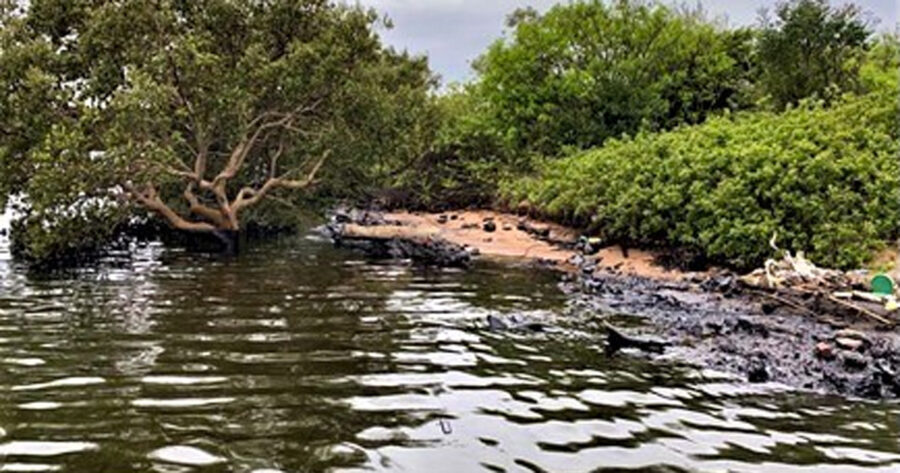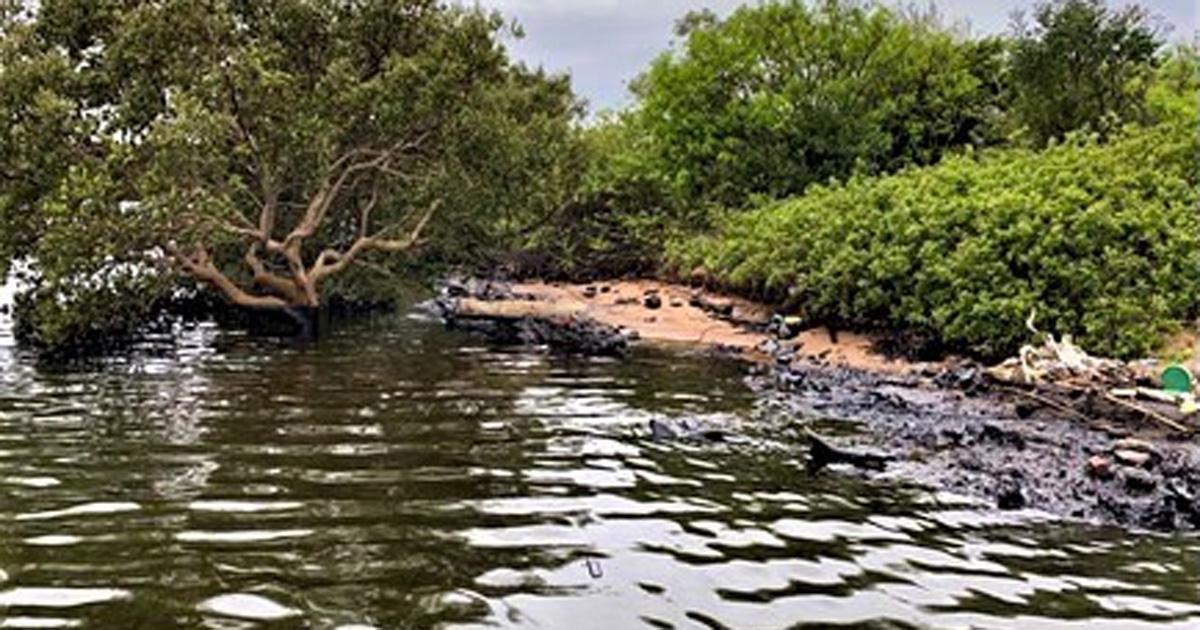
Catastrophic Oil Spill Poses Threat to Durban’s Fragile Ecosytem
Environmentalists have been shocked this week by the catastrophic crude oil spill from a Transnet pipe into the Umbilo River in KwaZulu-Natal (KZN), South Africa, which has spread down to Durban Harbour and can be seen as far as Battery Beach in Durban Central. The Democratic Alliance (DA) says it is “horrified” by the spill […]

Environmentalists have been shocked this week by the catastrophic crude oil spill from a Transnet pipe into the Umbilo River in KwaZulu-Natal (KZN), South Africa, which has spread down to Durban Harbour and can be seen as far as Battery Beach in Durban Central.
The Democratic Alliance (DA) says it is “horrified” by the spill of thousands of litres of crude oil into the Umbilo River. DA councillors who conducted a brief oversight visit to the site of the oil spill say they were greeted with the “horrific site of thick black oil permeating the river and its banks”.
Durban-based Greenpeace Africa Volunteer and Activist Delwyn Pillay says: “No matter how you spin it, fossil fuels inevitably carry the risk of putting the environment and surrounding communities in peril. As a resident of Durban, I see daily the wildlife that is dependent on the river system, and the communities that are connected along the river. Precious ecosystems like these, which canal into a natural heritage site made of the last remaining mangrove forests in Durban bay, are never safe while we are locked into dependence on fossil fuels.”
Coastwatch KZN reiterated the Umbile River was “already in a very bad way before this latest disastrous event. In fact, concerns over the health of the river have been voiced by environmentalists for over a decade with little action taken by authorities, and those responsible for the pollution left unchecked.”
Earlier this month, environmental activists of the Umbilo River Community called on the eThekwini Municipality to take urgent action to improve the water quality of the Umbilo River, after recent tests showed very high amounts of E. coli bacteria. They appealed to the community to stay out of the water.
Greenpeace says that environmental groups in Durban have been pressuring Transnet to make pipeline maintenance and monitoring records public since the diesel pipeline burst in the suburb of Hillcrest on 23 December 2014. The organisation says the latest uMbilo River ecological disaster reaffirms what the recent Mauritius oil spill tragically highlighted: “the problematic nature of transporting oil and more importantly the need to rethink South Africa’s addiction to climate-destroying fossil fuels”.
During the DA’s oversight inspection, Spill-Tech was on-site to fix the pipe and contain the spill.
Transnet Pipelines, which has been given a fortnight to submit a report to the KZN government on how the oil ended up in the water, has blamed attempted theft for the disaster.
Nomusa Dube-Ncube, MEC for Economic Development, Tourism and Environmental Affairs, said after visiting the site that she has “assigned a team of environmentalists from my department to work with Transnet following a pipeline theft incident that resulted in the spillage of crude oil in the Bellair area in Durban”.
Hannah Shameema Winkler MP – DA Shadow Deputy Minister for Environmental Affairs, Forestry and Fisheries – says the already severely compromised Umbilo river ecosystem -which has been the site of major sewage spills and industrial pollution – now faces complete ecocide. The impact on the ecosystem, wildlife, and communities dependent upon the river is unknown at this point, says Shameema.
The DA says it will ensure that eThekwini Municipality and KZN provincial authorities hold Transnet to account. “An immediate investigation must be undertaken into the allegations of Transnet’s ailing pipeline infrastructure as the cause of the oil spill. An environmental assessment of the damage must be commissioned and a plan for the rivers’ rehabilitation drafted, in consultation with environmental experts, to save the Umbilo River.”
It’s believed the devastating impact of the oil spill could take years to remedy. “A disaster of this scale should never have been allowed to occur and we must ensure there are no repeat incidents. The ongoing pollution of our waterways is a crisis that has been unfolding unabated in all of South Africa’s provinces for many years,” says Shameema.
The DA has submitted a parliamentary question to the Minister of Environmental Affairs, Forestry and Fisheries, Barbara Creecy, requesting her department’s plan to address the ecocide of South Africa’s rivers.
“South Africa is a water-scarce country and we cannot afford the destruction of our precious fresh water sources that many communities depend on,” says the DA.
Greenpeace’s Pillay says: “We need assurance that the containment measures being implemented by Transnet are actually effective. Are Transnet and the eThekwini Municipality prepared to deal with the impacts of the spill downstream, or are they merely temporarily putting a bandaid on a much bigger problem? The municipality must move with urgency to avoid further harm to the environment and surrounding communities. Ultimately, to safeguard South Africans, the Minister of Mineral Resources and Energy, Gwede Mantashe, must urgently prioritise shifting South Africa away from fossil fuels in a Just Transition.”
WATCH VIDEO: Oil spill turns uMbilo River black
Photos from Durban Crude Oil Spill
“No matter how you spin it, #FossilFuels inevitably carry the risk of putting the environment and surrounding communities in peril.” – Delwyn Pillay from @greenpeacedurbs
We should have learned our lesson from the #MauritiusOilSpill >> https://t.co/uQxAOZNy0J#Oil
.@sapeople pic.twitter.com/odMYKZnUm7— Greenpeace Africa (@Greenpeaceafric) October 26, 2020
